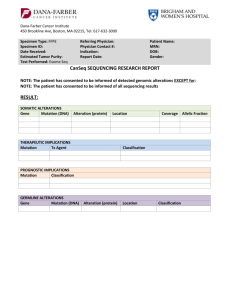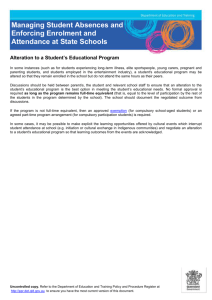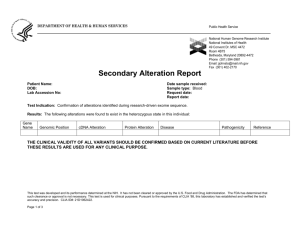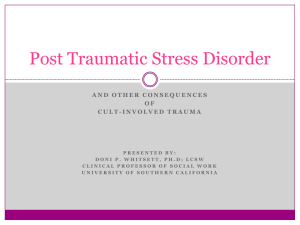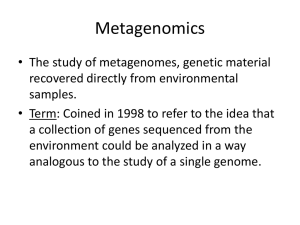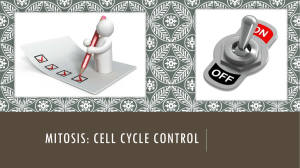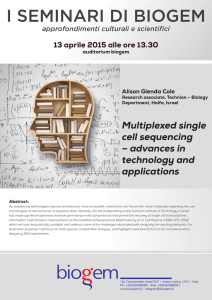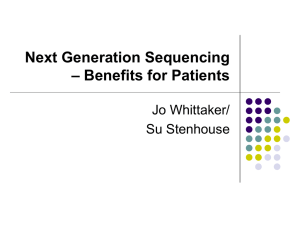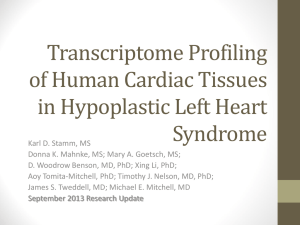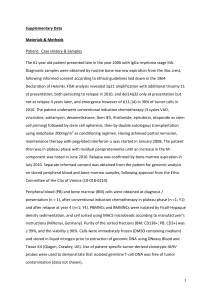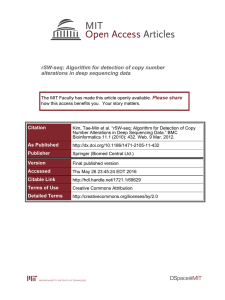Sample Negative Report
advertisement
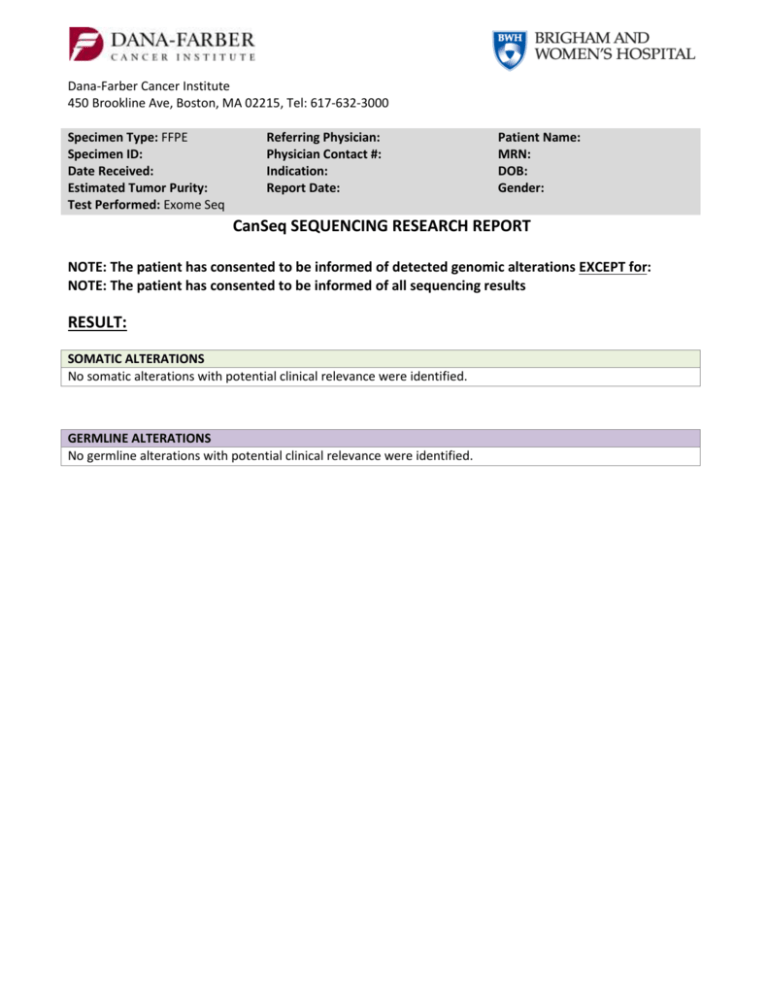
Dana-Farber Cancer Institute 450 Brookline Ave, Boston, MA 02215, Tel: 617-632-3000 Specimen Type: FFPE Specimen ID: Date Received: Estimated Tumor Purity: Test Performed: Exome Seq Referring Physician: Physician Contact #: Indication: Report Date: Patient Name: MRN: DOB: Gender: CanSeq SEQUENCING RESEARCH REPORT NOTE: The patient has consented to be informed of detected genomic alterations EXCEPT for: NOTE: The patient has consented to be informed of all sequencing results RESULT: SOMATIC ALTERATIONS No somatic alterations with potential clinical relevance were identified. GERMLINE ALTERATIONS No germline alterations with potential clinical relevance were identified. Patient Name: DOB: MRN: COMMENT: Additional confirmatory tests may be in progress. If additional clinically significant results are found that are consistent with patient preferences, these will be returned in an addendum. TEST INFORMATION: Background: The findings reported are those identified by whole exome sequence analysis of this patient’s cancer sample and blood sample with potential clinical relevance, as determined by the DFCI/BWH Cancer Expert Review Committee or Cancer Genome Evaluation Committee. Somatic genetic variants considered to be of clinical relevance include those that may predict response to treatment with FDA-approved therapies or to agents in clinical research trials, those with prognostic significance, and those that establish a specific diagnosis. Germline variants considered to be of clinical relevance include those with published evidence of clinical utility for assessing risk of a hereditary/familial disease, or clinically relevant variants associated with a recessive condition (i.e., carrier status). Pharmacogenetic variants are not being reviewed or reported at this point in time, but may be included in future CanSeq reports. Some sequence alterations may have been detected that are known to have no clinical utility, or that were judged to have insufficient evidence of clinical utility by the Cancer Expert Review Committee or Cancer Genomics Evaluation Committee during consensus review and, therefore, are not reported. Limitation: This research result does not exclude the presence of other types of molecular genetic alterations that are not detected. This exome sequencing and the analysis herein cannot detect genome rearrangements in introns, translocations and their breakpoint, large copy number variations, and repeat expansion disorders. Detection of those alterations requires different technology or method. In addition, this testing was carried out using a research instrument for which clinical-grade analytic parameters have not been established, therefore the absence of findings does not entirely exclude the possibility that additional clinically relevant sequence alterations are present but were not detected. These results should not be viewed as a substitute for diagnostic testing for any clinically suspected somatic or germline genetic variant. If there is clinical suspicion of an inherited or acquired variant, clinical diagnostic testing should be pursued. Dana-Farber Cancer Institute, 450 Brookline Ave, Boston, MA 02215 Tel: 617-632-3000 Page 2 of 4 , Patient Name: DOB: MRN: TEST INFORMATION (continued): Interpretation: Definitions for the “levels of evidence” for each somatic alteration reported are included below: CATEGORY: FDA-Approved Predictive Implications There is a validated association between this alteration and response/resistance to this FDA-approved agent for this indication LEVEL A This alteration is used or has been used as an eligibility criterion for clinical trials of this agent or class of agents CATEGORY: LEVEL A LEVEL B Prognostic There is a validated association between this alteration and prognosis in this tumor type There is limited evidence for an association between this alteration and prognosis in this tumor type Diagnostic There is a validated association between this alteration and diagnosis in this tumor type There is limited evidence for an association between this alteration and diagnosis in this tumor type Dana-Farber Cancer Institute, 450 Brookline Ave, Boston, MA 02215 Tel: 617-632-3000 LEVEL B There is limited clinical evidence (early or conflicting data) for an association between this alteration and response/resistance to this agent or class of agents in this tumor type LEVEL C LEVEL D There is clinical evidence for an association between this alteration and response/resistance to this agent or class of agents in another tumor type ONLY There is preclinical evidence for an association between this alteration and response/resistance to this agent or class of agents Page 3 of 4 , LEVEL E There is an inferential association (based on homology, computational data, structural information, or pathway involvement) between this alteration and response/resistance to this agent or class of agents Patient Name: DOB: MRN: METHODOLOGY Sequencing: Whole exome sequencing involves the sequencing of the entire coding region of all/most known genes in the human genome. This sequencing was performed in a research laboratory at the Broad Institute on DNA isolated from cancer tissue and matched blood in the CAMD as part of the DFCI/BWCC CanSeq project (DFCI IRB# 12-078). Variant obtained from the whole exome sequencing was classified, and then reviewed by the DFCI/BWH Cancer Expert Review Committee or Cancer Genome Evaluation Committee, which recommended confirmation of the above listed genetic variants in a CLIA-certified laboratory. This testing was performed under the auspices of a research study and is being reported into the patient’s official medical record in compliance with Institutional Review Board (IRB# 12-078) provisions. Confirmatory Testing: OncoPanel: We have developed a cancer genomic assay to detect somatic mutations, copy number variations and structural variants in tumor DNA extracted from fresh, frozen or formalin-fixed paraffin-embedded samples. The OncoPanel assay surveys exonic DNA sequences of 275 cancer genes and 91 introns across 30 genes for rearrangement detection. DNA is isolated from tissue containing at least 20% tumor nuclei and analyzed by massively parallel sequencing using a solution-phase Agilent SureSelect hybrid capture kit and an Illumina HiSeq 2500 sequencer. This assay was validated and performed in a CLIA-certified laboratory. Sanger Sequencing: Alterations confirmed by this method were confirmed by resequencing of amplified DNA using the Sanger method, with fluorescently-labeled dideoxyterminators and capillary electrophoresis (Applied Biosystems 3100 Avant). This method has analytic specificity >99%, but may fail to detect mutant sequences when present in <25% of alleles. REFERENCES: Interpretation and Report by: ______________________________________________ Dana-Farber Cancer Institute, 450 Brookline Ave, Boston, MA 02215 Tel: 617-632-3000 Page 4 of 4 ,
